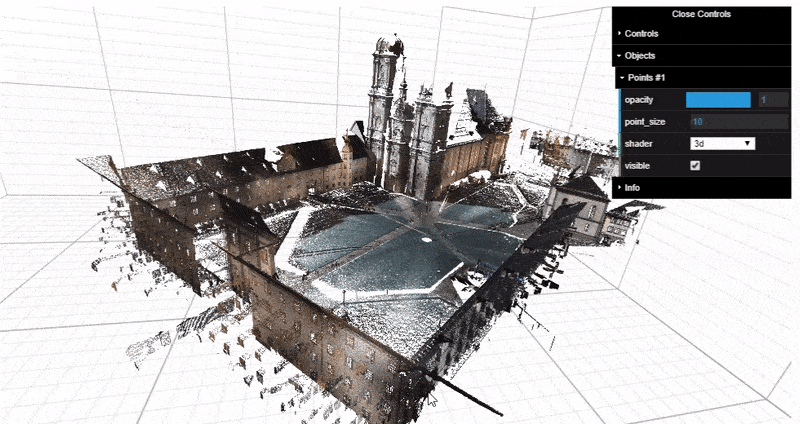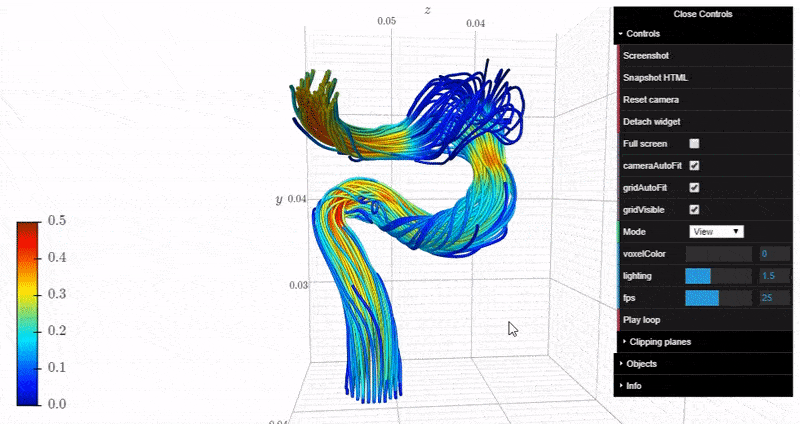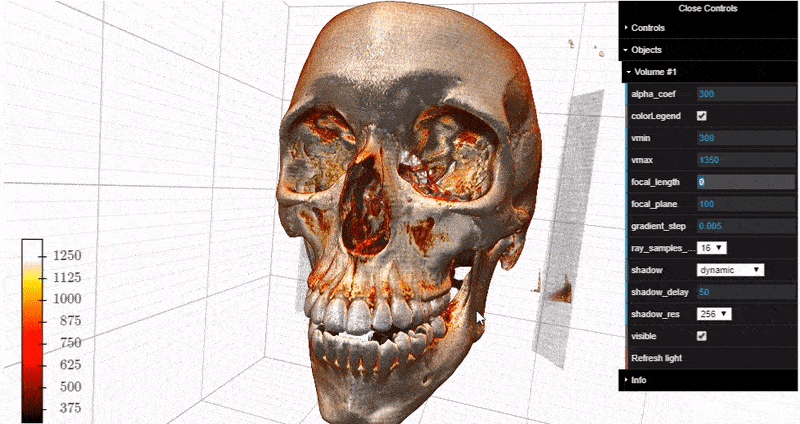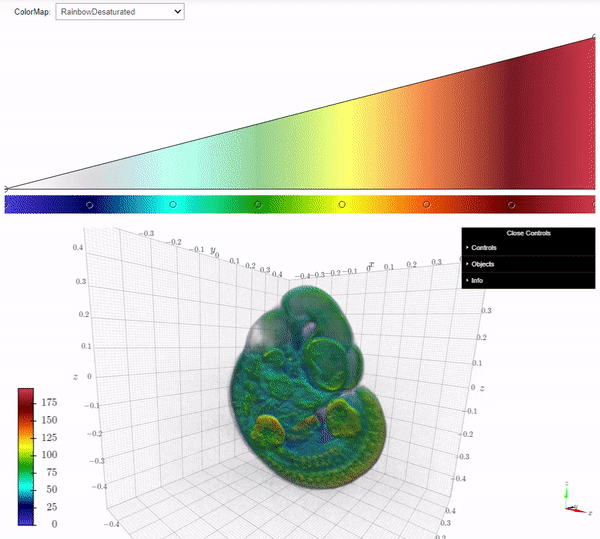Jupyter notebook extension for 3D visualization.
Watch: Interactive showcase gallery
Documentation: https://k3d-jupyter.org
To install from PyPI use pip:
$ pip install k3d
To install from conda-forge use:
$ conda install -c conda-forge k3d
To install directy from this repository (requires git and node.js + npm to build):
$ pip install git+https://github.com/K3D-tools/K3D-jupyter
This also makes possible installing the most up-to-date development version (same requirements):
$ pip install git+https://github.com/K3D-tools/K3D-jupyter@devel
To install any historical version, replace devel above with any tag or commit hash.
For a development installation (requires npm and node.js),
$ git clone https://github.com/K3D-tools/K3D-jupyter.git
$ cd K3D-jupyter
$ pip install -e .
Then, if required, JupyterLab installation:
$ jupyter labextension install ./js
Then, if required, JupyterLab installation:
$ jupyter labextension install @jupyter-widgets/jupyterlab-manager
$ jupyter labextension install k3d
Please notice that support for jupyterLab is still experimental.
Please make sure to take a look at the HOW-TO.md document.
K3D-jupyter follows the Python Software Foundation Code of Conduct in everything we do.
|
|
This package was created as part of the Horizon 2020 European Research Infrastructure project OpenDreamKit (grant agreement #676541). |










